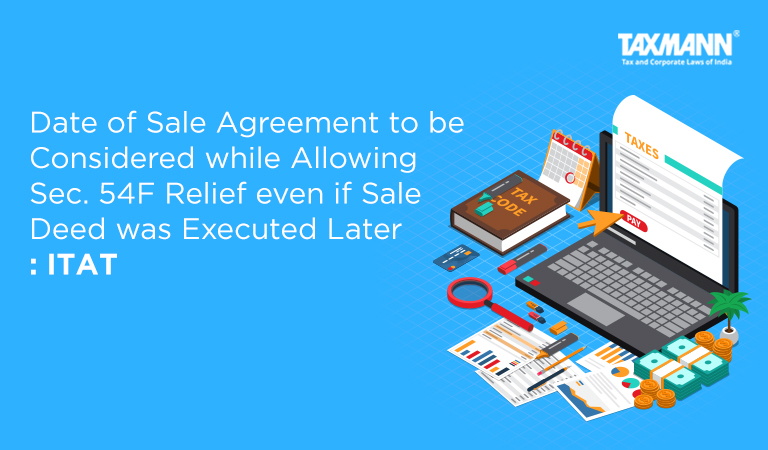
Case Details: Mrs. D. Vijayalakshmi v. ITO - [2023] 148 taxmann.com 370 (Chennai-Trib.)
Judiciary and Counsel Details
- Mahavir Singh, Vice President & Manoj Kumar Aggarwal, Accountant Member
- Anandd Babunath, (CA)-Ld AR for the Appellant.
- D. Hema Bhupal, (JCIT)-Ld DR for the Respondent.
Facts of the Case
Assessee-individual sold certain property under an unregistered sales agreement in the relevant assessment year and received an advance. Out of the advance received, a property was purchased. Later, upon receipt of the full consideration, the possession of the property sold was handed over, and the sale deed was executed. Assessee purchased another adjacent property and constructed residential building. Assessee claimed section 54F exemption and paid tax on the remaining long-term capital gains.
During the assessment proceedings, the Assessing Officer (AO) denied the section 54F exemption for the first property as it was purchased based on an unregistered sales agreement. AO held that unregistered document could not be considered while allowing the benefit of section 54F exemption.
On appeal, CIT(A) upheld the additions made by the AO. Aggrieved-assessee preferred an appeal to the Chennai Tribunal.
ITAT Held
The Tribunal held that the deduction under section 54F couldn’t be denied to the assessee simply because the sale deed was executed subsequently. In the given case, assessee entered into a sale agreement for the sale of property and received the sale consideration from time to time.
The first property was purchased by the assessee within 1 year from date of the unregistered sales agreement. Thus, deduction with respect to the first property could not be denied to assessee.
List of Cases Referred to
- Humayun Suleman Merchant v. Chief CIT [2016] 73 taxmann.com 2/242 Taxman 186/387 ITR 421 (Bom.) (para 4).
The post Date of Sale Agreement to be Considered while Allowing Sec. 54F Relief even if Sale Deed was Executed Later: ITAT appeared first on Taxmann Blog.
